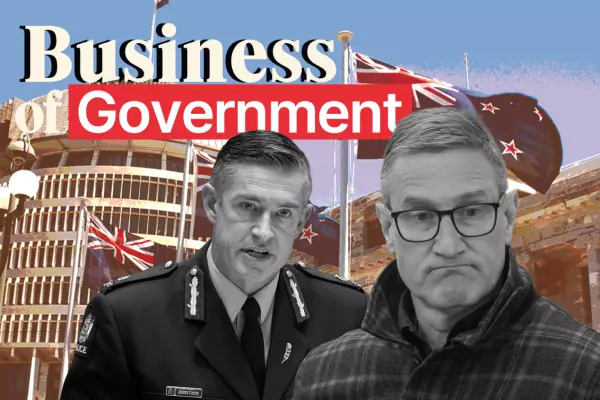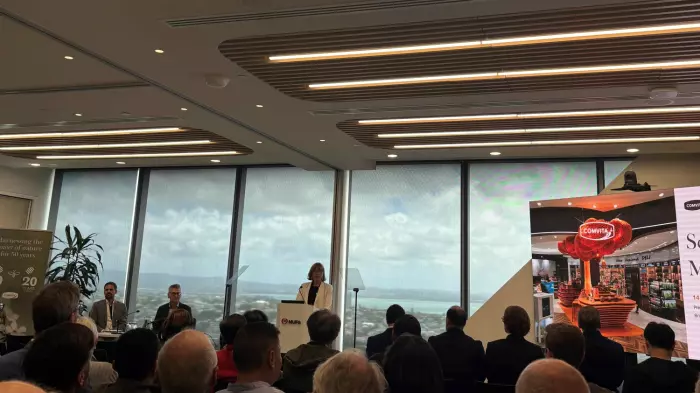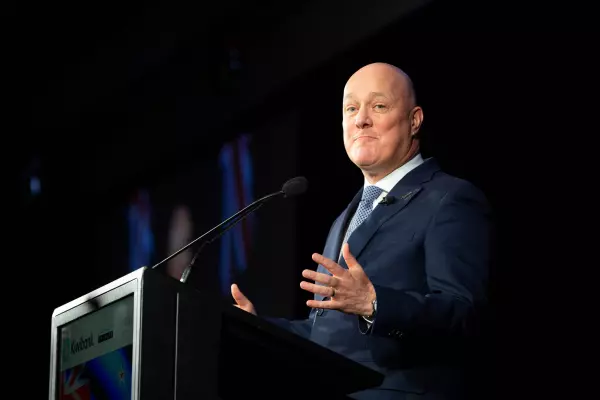In a mere couple of months, a wildly popular government has managed to annoy almost every imaginable political constituency you care to name.
Among most of those constituencies are the voters who delivered Labour an unprecedented single-party majority at the election held just over six months ago.
Part of the reason for this is that it has started to govern on normal issues after the unique challenge of covid-19 to which the country has so far risen so well.
Part of it is a sneaking fear the government is not only a bit incompetent, but that it is trying to do too much and doing some of it badly.
Landlords, renters, and public servants are the most irritable.
So is an increasingly large swathe of the business community, which is struggling to interpret a reform-minded government many business leaders say they find hard to engage with.
Also on the march is a large silent minority of socially conservative New Zealanders who are already ‘triggered’ when New Zealand is called Aotearoa in a BusinessDesk story, and who bristle if told that looks like racism.
For them, the emergence of He Puapua, the report that proposes a Māori upper house of parliament among other fundamental constitutional changes, is frightening and enraging.
The fact the two-year-old report has “come to light” rather than being acknowledged or considered by cabinet breeds suspicion about ‘hidden agendas’ of the kind that might see NZ known as Aotearoa all the time.
Most Māori voters, meanwhile, have had enough of waiting for such people to acknowledge the undeniable inter-generational impact of colonisation on the Māori people.
Māori are traditionally Labour voters, there is a very large Māori Labour caucus and with firebrand Māori party MPs Rawiri Waititi and Debbie Ngarewa-Packer breathing down their necks, there is pressure on Labour to perform for its Māori vote.
What ails?
To take each group in turn:
Landlords are hardly Labour’s core supporters. But many went to Labour in the ‘thank you for covid’ vote that gave Labour its rare majority. Many are grumpy now. The tax changes in the March housing measures were an unpleasant surprise and also no one likes being singled out as a hate figure.
Renters are scared and angry because the tax changes visited on landlords are likely to cause already unaffordable rents for often sub-standard properties to rise. They wouldn’t have expected that from a majority Labour government.
Public servants are livid because, out of the blue and with none of the usually carefully laid public relations groundwork, the government announced its expectation of a three-year public service pay freeze last week.
There are claims this is evidence of an ‘austerity’ budget on May 20. That is way too strong.
If adding $60 billion-plus to public debt in the last year is austerity, show me largesse.
How is this Labour?
But that is not stopping many would-be Labour supporters from asking, is this really a Labour government?
Two days after the pay freeze announcement, to placate at least parts of its base, the government hit green on Fair Pay Agreement legislation – a delayed and major pay-off for trade union support. This helped but was far from enough to drown out the pay freeze outrage.
Forgotten are the plaudits a fortnight ago for Andrew Little's health reforms.
Meanwhile, by timetabling the biggest labour market reforms in a generation, the government has also stirred up worry among an increasingly febrile business community.
Plenty of private-sector employers are already rattled by other things the government is either up to or planning. Confirmation they might lose direct control over their workers’ pay and conditions is another worry to add to the pile.
Workplace relations minister Michael Wood insists that Fair Pay Agreements (FPA) will initially target large, poorly paid and very casualised workforces – supermarket workers, cleaners, and security guards being the primary targets.
However, a nationally led FPA negotiation would be an unwelcome prospect for many small business owners after 35 years in which union membership has dropped from 65% of the workforce to about 16% today.
Nor is there much initial appeal to having benchmark wages and conditions determined in a process led by Business NZ negotiators and the Council of Trade Unions.
Wood argues good employers will no longer be at the mercy of bad employers who use low wages and poor conditions to undercut them.
Likewise, there is ample evidence some employers prefer a national collective agreement and are happy to shed the time, energy and resource required to manage employment terms at the enterprise level.
If the OECD is to be believed, having a large part of the national workforce covered by collective bargaining is correlated with better workplace relations and higher productivity – the latter still eluding NZ industries.
Logic vs worry
However, these are logical arguments. Politics and logic don’t always go hand in hand.
Expecting employers to fear nothing from FPAs is as heroic as expecting public servants to shrug at a pay freeze because they actually know it won’t stop them progressing up existing pay scales; it will still be possible to ‘re-size’ jobs to justify a pay rise; or to take a different, better-paid role anywhere in the public service.
Nor is the pay freeze binding.
As CTU president Richard Wagstaff noted in a perceptive commentary for BusinessDesk last week: “There is nothing new with the issuing of expectations that set a low bar for public sector worker wage movement. That is almost a permanent state of affairs.”
Ministerial “expectations” that become “guidelines” from the Public Service Commission do not have the force of law, he noted.
That rests with the good faith bargaining provisions in the Employment Relations Act. It is under those rules that public-sector unions and their employers will engage in pay talks.
Unless it is particularly easily rattled, the government is unlikely to reverse its edict.
Six months in
The government is only six months into a three-year term and a government's role is to make unpopular as well as popular decisions.
After covid, there are very high expectations of this government, but now it is beginning to govern on more conventional issues again. Sometimes, it’s a bit of a downer.
However, governments also like to make their most unpopular decisions early in the term: that is, about now.
The political calculus is presumably that a Labour-leaning public service has nowhere to go other than to the Greens, who Labour expects will be a coalition partner after the next election anyway. There is no expectation of a third-term Ardern administration governing alone.
They expect public sector workers will come to see that pay equity is still being pursued, as is an improvement for low-paid or precariously employed public servants – women, younger workers, Māori, Pasifika, and recent migrants.
The rage, they expect, is survivable.
Don’t discount National
Less clear is whether the National party is necessarily a basket-case if Judith Collins can navigate the cultural politics of He Puahua without starting an ugly, race-tinged culture war.
Her ear is well-tuned to the largely unpublicised but roiling discontent among mainly pākehā New Zealanders about what they see as creeping separatism in NZ politics.
Jacinda Ardern believes NZ has moved past the point of that kind of debate. She may be right in the sense that a critical minimum of New Zealanders are over the line on honouring the Treaty and the blight of colonialism.
But there are plenty of citizens of Aotearoa who are not there yet or are damned if they're going to accept that $12,000 is an acceptable cost to bury a dead turtle, no matter its cultural significance.
This may be dangerous territory politically, but avoiding it does not look to be an option.
Collins's speech to the National party's lower North Island regional conference yesterday is an important read for anyone wanting to know where this debate could head.
Just add covid
Underneath this testy dynamic remains the threat of a global pandemic that is not going away.
While travel bubbles and vaccines suggest the end is in sight for covid-19 restrictions, the truth is that NZ is more vulnerable to a community outbreak now that the trans-Tasman bubble has opened.
The border – our ultimate defence – has an official, Australia-shaped crack in it.
Meanwhile, the vaccination programme is barely under way and may yet prove vulnerable to poor execution on numerous fronts. If, for example, the Ministry of Health has any trouble bolting together a national vaccination booking system by the end of this month, the mass rollout will stretch later and later into the year.
Meanwhile, in low and middle-income countries, covid is not only raging but continuing to mutate.
Yet in NZ, the use of the Covid Tracer App is falling off a cliff.
The national mood on covid appears to assume both that we have now dodged the bullet, that the end is in sight, and we can all relax.
If anything, we should be relaxing less.














